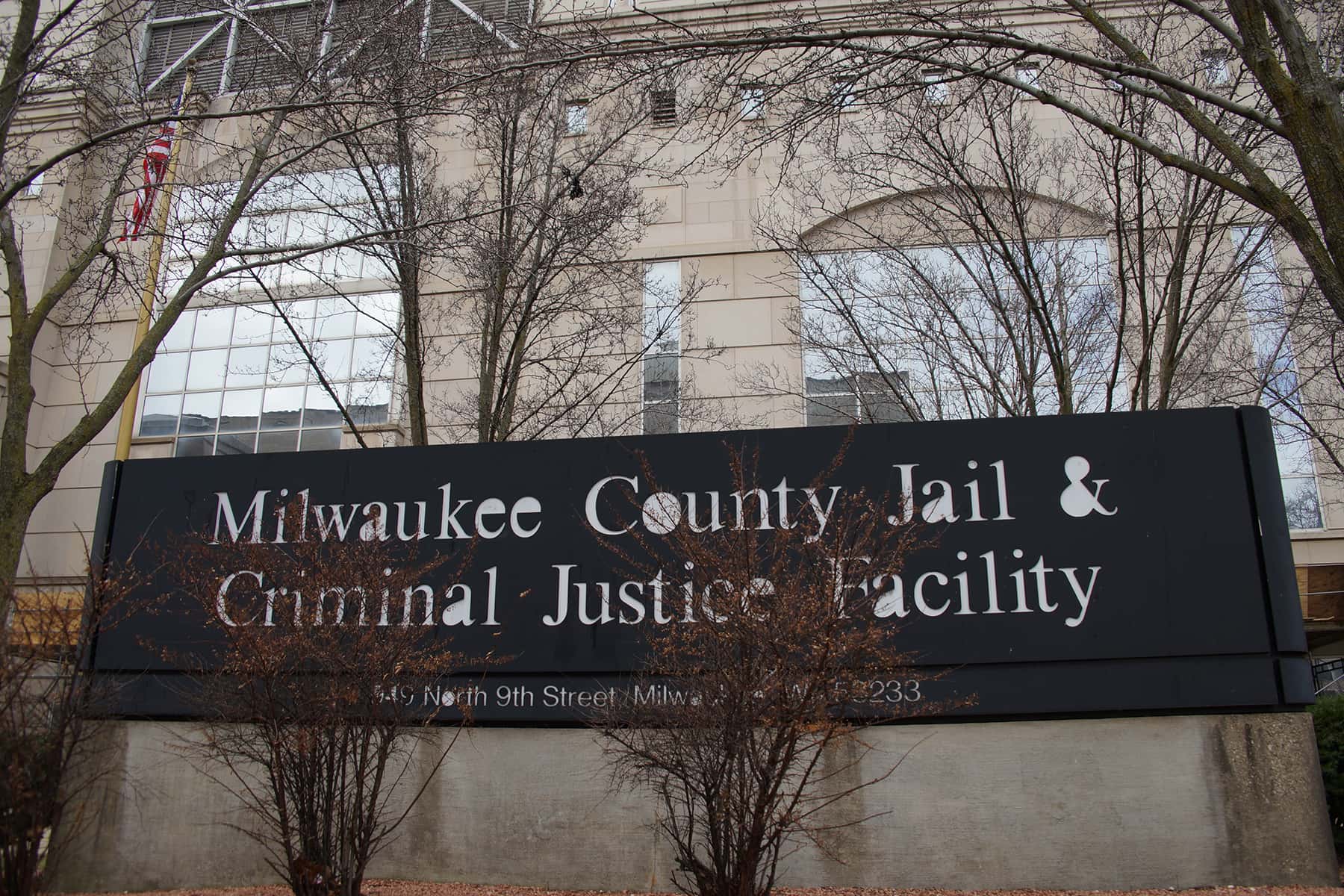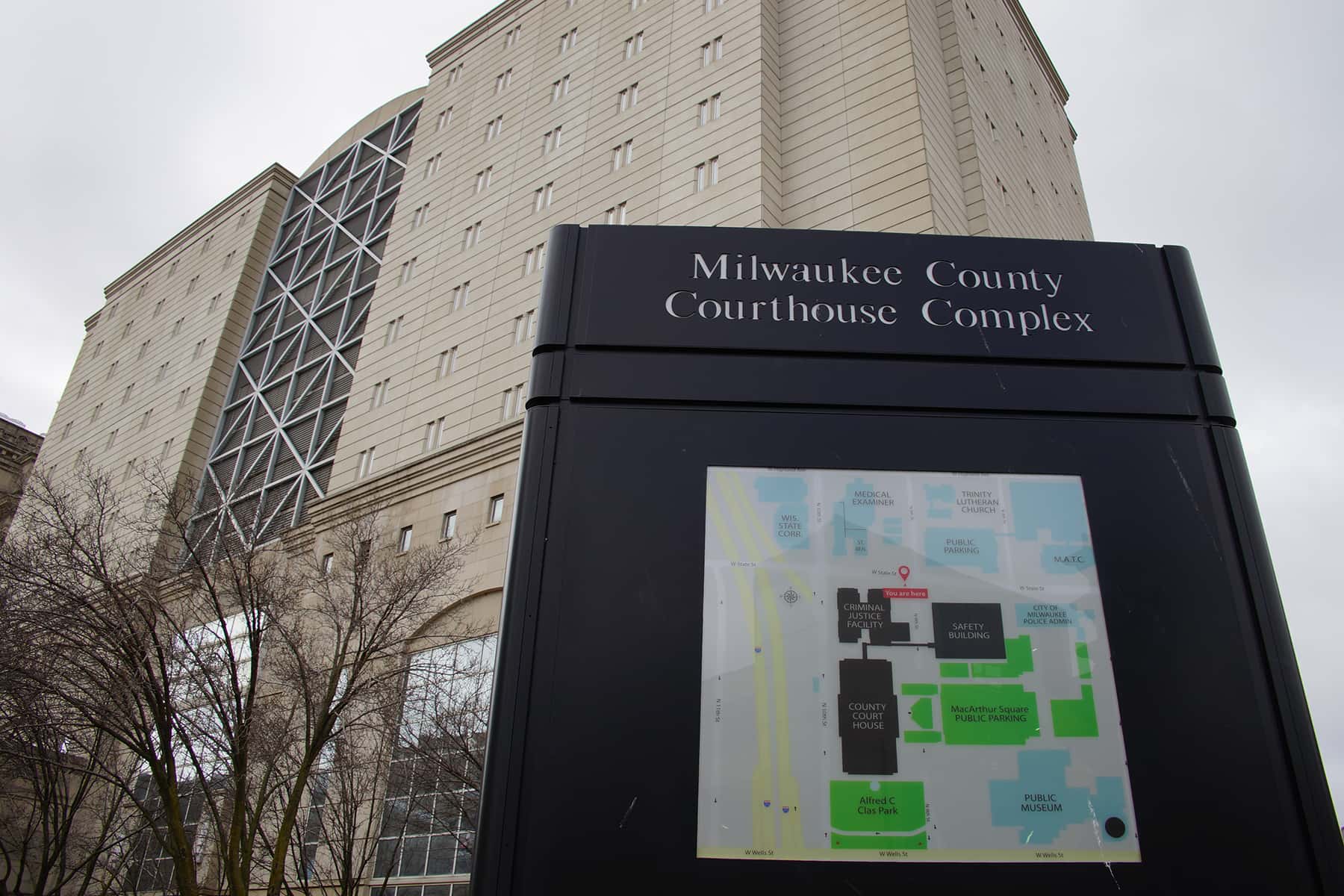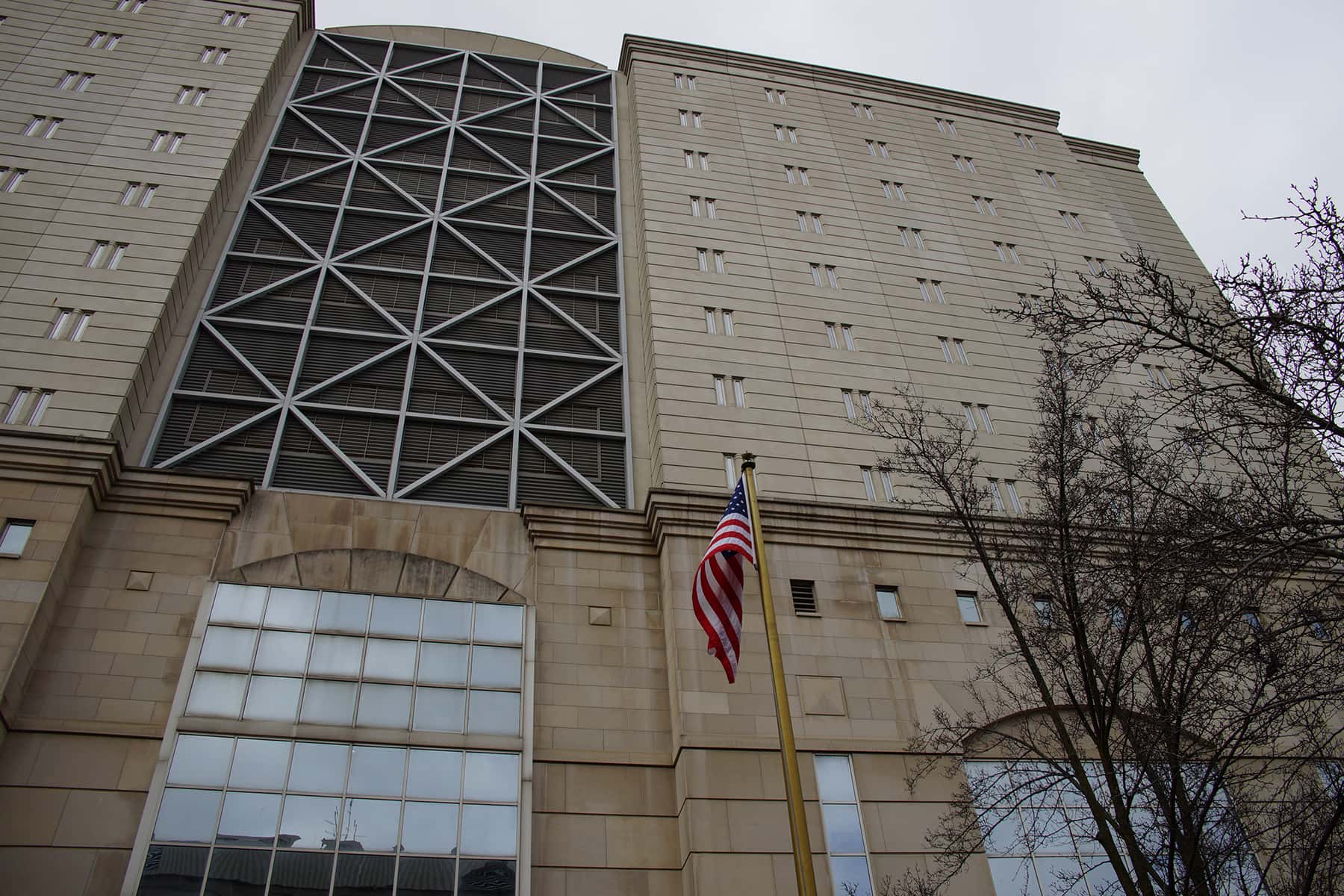
Milwaukee County’s Community Justice Council leadership have been working together to develop comprehensive strategies for preventing the spread of COVID-19 throughout the local justice system and the broader community.
On Thursday, March 12, 2020, justice system leaders assembled for the first of many discussions to outline a collective response to this public health emergency. Longstanding and collaborative relationships made the ambitious feat of creating a systemwide redesign achievable within only a few days of the initial meetings.
Law enforcement and the justice system continue to prioritize and maintain an appropriate level of response to serious crime. To align with national best practices, measures to reduce the number of people physically present within the Courthouse complex, Criminal Justice Facility, and House of Correction were deemed necessary to prevent the spread of COVID-19 within our institutions. Establishing a work-from-home policy for all non-essential staff, Milwaukee County thoughtfully condensed twenty-three criminal dockets into three courts, which handle initial appearances, preliminary hearings, bail modification requests, some mental health-related hearings, and pleas and sentencing in cases ready to resolve.
Videoconferencing is now used for initial appearances and preliminary hearings, reducing the amount of personal contact at the initial stage of criminal cases. Thousands of cases, not ready for resolution, have been rescheduled to later dates. For those ordered to pretrial supervision in the community, measures are in place to safely continue that monitoring by telephone.
Milwaukee County operates two local jail facilities for adults and one juvenile detention center. The Milwaukee County Jail primarily serves those pretrial status and serves as a central point of intake for adults arrested within Milwaukee County. The Milwaukee County House of Correction, located in Franklin, is designed to house individuals sentenced to less than a year, as well assist with pretrial overflow from the Milwaukee County Jail.
Recognizing jails and prisons are vulnerable to outbreaks of this kind, it was imperative to introduce new protective screening and isolation procedures, as well as reduce the number of individuals within local facilities. Milwaukee County has been successful in achieving a reduction that allows for single-occupant cells at the jail, which is indicated as a national best practice and provides for safe physical distancing. The steps to create a reduction were and will continue to be done with great thought and care with the best interests of victims and public safety in mind.
As indicated recently by County Executive Chris Abele, unfortunately, despite the best preventative efforts, an individual within the House of Correction and a nursing staff person at the Jail have tested positive for COVID-19. All efforts are being made, in consultation with public health professionals, to appropriately respond and limit any continued spread of the virus within the facilities.
Collectively justice system leaders agreed the District Attorney’s Office will continue to immediately review all felony cases, as well as Domestic Violence misdemeanor matters, for charging. However, to limit new jail admissions, no other standalone misdemeanor arrests will result in the immediate transfer of individuals to the local county jail.
Instead, law enforcement agencies will refer the appropriate charges to the District Attorney’s Office for review and individuals will be given contact information for the Public Defender’s Office; these temporary policy adjustments were made in partnership with the Milwaukee County Law Enforcement Executives Association (MCLEEA). Prosecutors and many of their support staff are now equipped with technology to conduct essential work, including the review criminal referrals, from home.
Prosecutors and defense attorneys, working in concert with Judges, the Sheriff’s Office and House of Correction leadership, also reviewed the local jail and HOC population to identify individuals with pending criminal cases that were ripe for immediate resolution as well as those cases that with a slight bail adjustment were believed to be safely monitored in the community pending the resolution of their case.
These cases have been given priority scheduling within the criminal courts. In addition, the State of Wisconsin Department of Corrections has reviewed and reduced its use of revocations of individuals under supervision for rules violations. Milwaukee County will continue to work with the Department of Corrections to find additional ways and means to collaborate in safely reducing the State prison population.
Through systemwide collaboration, these collective efforts have reduced the footprint of people within the Courthouse complex by over 90% in the past three weeks. This collaborative culture took root in 2008, when the average daily jail population3 hovered around 3000 in Milwaukee County. Since that time, criminal justice leaders have worked through the Milwaukee Community Justice Council to prioritize limited justice system resources, prevent the overuse of the local jail, and still uphold public safety.
With support from the National Institute of Corrections Evidence-Based Decision-Making initiative, Milwaukee County created several processes and programs over the past 12 years, including the District Attorney’s Office Early Intervention program, which improves connections to treatment and non-criminal justice resources. These programs in turn reduce pressure on the traditional justice system and improve outcomes for individuals and the community.
When Milwaukee County joined the MacArthur Foundation Safety and Justice Challenge (SJC) in 2016, the average daily jail population had fallen to 2,325 (May 2016). By December 2019, Milwaukee County further reduced its daily jail population to 1,809, surpassing its SJC goal.4 Today, through the joint efforts during this unprecedented public health emergency, the total jail population has been reduced even further to 1,373.
While the Milwaukee Community Justice Council serves as the criminal justice coordinating council (CJCC) for Milwaukee County, leaders were intentional in the naming. CJCC’s are often created to break down siloes between the agencies that comprise the criminal justice system; however, Milwaukee County took an additional step to connect government and community. Rather than criminal, “community” coupled with justice was chosen to embrace a broader partnership with non-criminal divisions of the justice system, community organizations and Milwaukee County residents.
Justice system leaders are working to ensure that vulnerable people are supported during these difficult times; this includes working to support the needs of civil, small claims, family, and probate courts. As expected, this rapidly-evolving situation requires flexibility and ongoing adjustment by criminal justice stakeholders. Updates and modifications are likely to happen; thus, the ongoing collaboration among leaders and the wider community will continue.
© Photo
Lee Matz
















